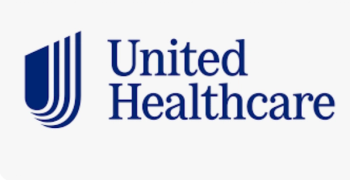
Three Ways Healthcare Can Build Trust
Trust in healthcare is much lower than in other sectors, so what can health execs do to increase that trust?
Trust in healthcare increased in the U.S., rebounding from last year, according to a new report.
According to the
However, when compared to trust in the other 15 sectors of business studied, healthcare ranks within the lowest third. For perspective, 67% of study participants said they trusted healthcare to “do what is right,” while 78% said this of Technology, the most trusted sector globally in Edelman’s study.
In addition to healthcare as a sector of business, Edelman also studies pharma, biotech, consumer health, insurance, and hospitals /clinics as sub-sectors of healthcare. A five-year look at trends across the sub-sectors of healthcare shows:
- Hospitals/clinics remain the most trusted of the sub-sectors, though this year we saw the first global decline in trust (Trust score of 71 globally, -1 from 2018)
- Biotech follows as the second-most trusted, and trust increased slightly this year (Trust score of 64 globally, +1 from 2018)
- Health insurance, which falls in middle in terms of trust across the sub-sectors, also gained trust (Trust score of 62 globally, +2 from 2018)
- Consumer health has made steady gains in trust for several years, though it remains neutral (Trust score of 59 globally, +2 from 2018)
- Pharmaceuticals remains the least trusted sub-sector of the five, despite improvements this year (Trust score of 57 globally, +2 from 2018)
However, despite the modest improvements in trust this year, the report uncovered several concerning disparities among specific audiences:
- Inequality in trust reached a record high globally for healthcare. “While healthcare is trusted by both the informed public (with a score of 75) and mass population (with a score of 65), the real issue is the continued inequality in trust between the two,” says Susan Isenberg, global chair, Health Sector, Edelman. “In 23 markets, the global gap widened this year to 10 points, making it the largest disparity we’ve seen since tracking the healthcare sector since 2016. We believe this widening gap underscores the instability of trust. For example, the mass population may feel left behind even as they recognize the advances that are being made in healthcare. Given tone and tenor of the day, particularly as pricing conversations heat up ahead of the 2020 U.S.
elections , healthcare may continue to see increasing demands for change and regulation.”
- Women trust healthcare less than men; largest gap in the U.S. There is also a concerning gap in trust in healthcare between men and women, according to the report. “Globally, women are less trusting of healthcare, a divide that has continued to grow over the last few years,” Isenberg says. “Women do not trust healthcare in 12 out of 26 markets. This includes countries like the U.S, which has a 16-point trust gap between men and women. Women, often the chief medical officer for their families, are a key audience for all health companies. They are a critical group for restoring trust.”
- Healthcare is missing the employee trust advantage. “Globally, employees in a specific industry sector have a higher level of trust in that sector than does the general population,” says Isenberg. “However, healthcare is missing this employee trust advantage seen by other sectors of business. There is only a three-point difference in trust between how those employed in the healthcare sector trust it vs the general population, as compared to an average of nine points across all industry sectors.”
While those who work in industries like energy, financial services, and fashion trust their business sectors much more than the general population does, healthcare sees little of this employee trust advantage in the sector, according to the report.
“Trust levels in healthcare are nearly the same across both employees and the mass population,” Isenberg says. “When looking at employees’ expectations of healthcare employers compared to perceived performance of healthcare employers in those areas, Edelman Trust Barometer data show healthcare lags behind in employee empowerment and CEO leadership.”
Related:
Employees are ground zero for growing trust in healthcare, according to Isenberg. “Global Trust data show that when employees trust their employers, they are far more likely to advocate on their behalf, stay loyal, be engaged and live the organization’s mission,” she says. “Healthcare companies should look to build trust by doubling down on employee communications and fostering engagements that are driven by employees themselves. Beyond their commitment to patients, health organizations must show how they are purpose-driven. Employees want to know what their employers are doing to make the world a better place-and how their job directly contributes to this societal impact.”
Taken all together, this year’s Trust data for healthcare and its sub-sectors show that trust is fragile, according to Isenberg. “Healthcare companies must take sustained, proactive action or run the risk of further eroding trust,” she says. “We recommend starting by earning trust with key audiences, like employees and women-and the following were found to be trust-building activities:
- Lean into health tech stories. Many healthcare companies are making rapid advancements through the use of new technologies, according to Isenberg. “Knowing how to share those stories can help build trust, as the Edelman Trust Barometer shows globally people feel generally positive about health technology. People trust tech as much as they see their own benefits linked to it-though
personal data can be the Achilles’ heel. For healthcare companies to build off the trust halo around their technology, consumers must know that any data that they may have contributed is private and protected.”
- Transparency, particularly in pricing. Globally, being transparent around the cost of products and services was the most chosen answer for how healthcare companies can earn and keep trust, according to the report. “This should be no surprise as pricing is one of the top issues dominating global healthcare headlines,” Isenberg says. “All healthcare companies must be prepared to discuss cost, particularly in markets like the U.S. where regulatory action is nearly certain to heat up.”
- Activate a cross-channel plan. Healthcare companies must activate multiple communications channels to build trust, according to Isenberg. Global Edelman Trust Barometer data found media engagement rose this year, as did trust in both traditional media and search engines. “Yet while traditional media is an important part of the communications model, companies also need to tell their own stories.,” she says. “The Trust Barometer found an eight-point increase in trust in owned media this year, one of the largest increases we have seen across the types of media studied. Additionally, data show content about medical conditions and their treatments provided by health companies is seen as credible at 68%-and this increased by four points since the 2018 Trust Barometer-while only 57% trusted media to report accurate information about healthcare. This is a clear opportunity for health companies to leverage their owned media channels to reach consumers.”
Newsletter
Get the latest industry news, event updates, and more from Managed healthcare Executive.























